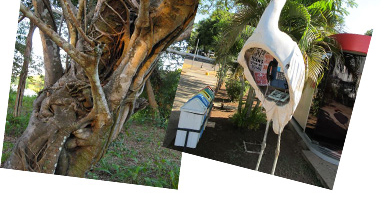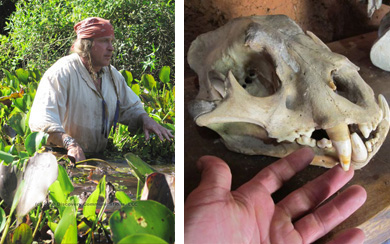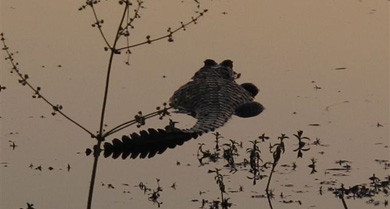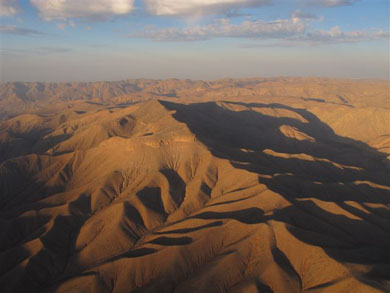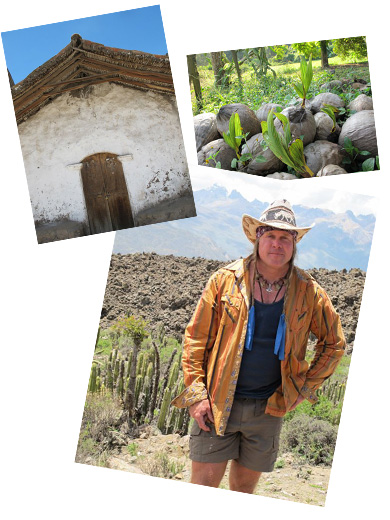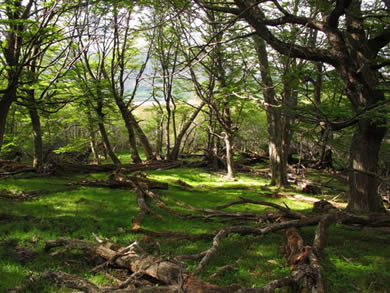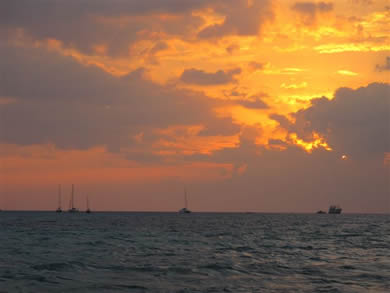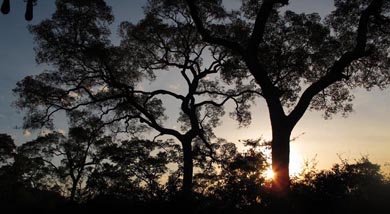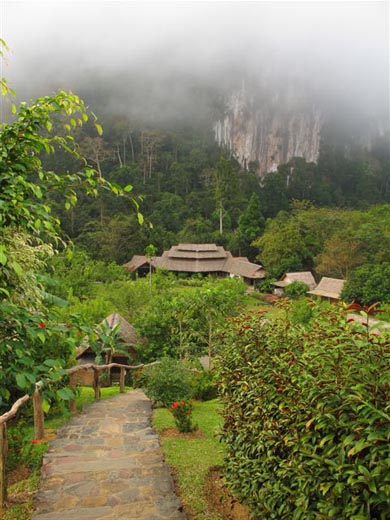© 1991-2023 CODY LUNDIN Aboriginal Living Skills School, LLC P.O. Box 3064 Prescott, Arizona 86302 U.S.A.
(928) 713-1651 abodude@codylundin.com Site map
(928) 713-1651 abodude@codylundin.com Site map

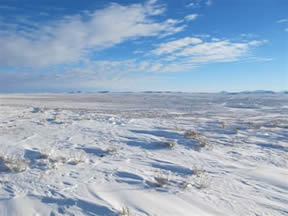
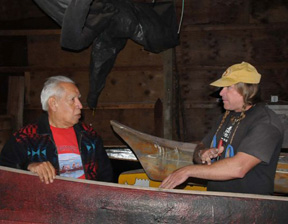

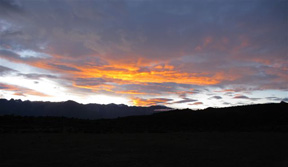
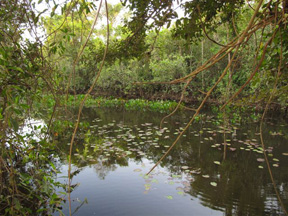
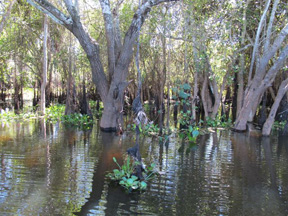
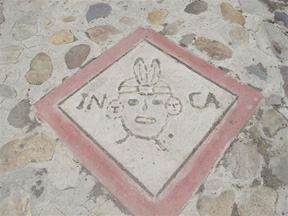

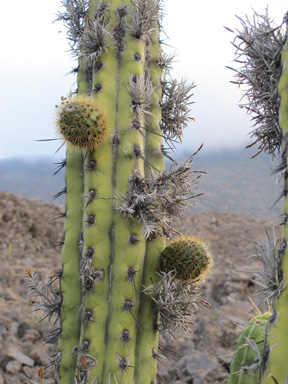
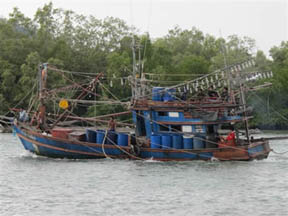
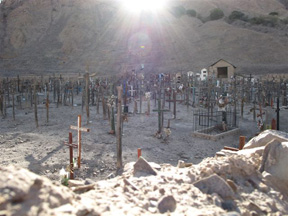
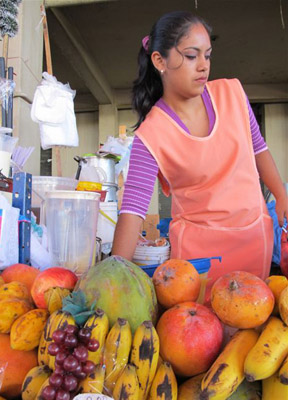
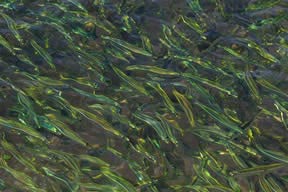
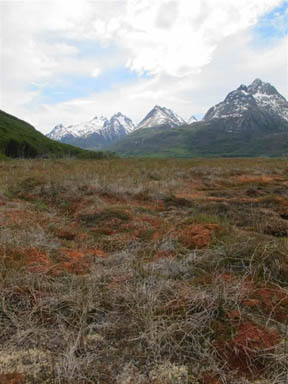
Why do you go barefoot?
I like my feet tough. Prisoners of war were always stripped of their shoes as without them they were less likely or able to run. Going barefoot forces me to pay attention to my environment. I see more, I have better focus, I feel a greater connection to the planet; all very valuable survival traits. Due to the forced, free range of motion that my feet and ankles are forced to deal with, they are both very strong. On the “everyday life” side of things, the majority of the situations in my life do not require footwear…so why would I consume a resource when it’s not necessary? I also like the challenge.
Do you recommend that others go barefoot?
No. I have no agenda either way; do what feels natural. At times people feel the need to ask me to wear shoes, or that native peoples wore shoes, (some did, some didn't) so why don't I. I'm not asking that anyone go barefoot, so I appreciate the same courtesy of folks letting me do my thing without hassling. If people choose to travel in the world beyond predictable, "modern" destinations, they will see how common going barefoot is for millions of people. It really isn't that big of a deal when thousands of grandmothers and little boys are doing it worldwide.
How long have you been going barefoot, and do you ever wear shoes?
I started going barefoot in the late 1980’s. I don't wear "shoes" but i do wear sandals on pieces of some advanced cross country courses due to ground temperatures, extreme mileage and/or student safety. I keep flip flops in vehicles to allow me to enter certain stores, restaurants, or to board airplanes.
What’s your necklace made from?
A friend gave me the mountain lion claws. Another friend gave me the Thor’s hammer from Sweden. I added red ochre from an Indian ochre mine to the base of the claws, strung them, and have worn the piece for many years.
Do you work out?
Yes, I’ve been training with free weights for many years. All survival training revolves around keeping the human body alive. The better the body is kept in shape, the better it will perform under survival stresses.
What’s your favorite survival skills gathering?
There are many skills gatherings that have sprung up over the years. I would bet that all of them have been influenced by Rabbit Stick Rendezvous; the oldest (34 years) and largest of the bunch. Six days of training from dozens of the best instructors in the world, all for a nominal fee. I’ve been teaching modern survival skills and primitive living skills at Rabbit Stick for 33 years, so unlike many “endorsements” in the marketing world, this one comes with much experience.
Can you explain your self-reliant home?
I live underground in a passive solar earth home that I designed myself and built with the input and labor of many friends. The armature was created by a grid of rebar, building fence, stucco netting, and burlap. It was later shot with a gunite machine, insulated, and back filled. You can read an excerpt about it from my book When All Hell Breaks Loose here. I don’t have building plans available for my home as we never had any plans, but great sustainable building ideas, concepts, and training can be found on the Ecosa Institute web site.
I’m looking for outdoor survival skills training. Can you tell me how to choose a good instructor?
Yes. My opinion about choosing a good survival skills instructor is here. Be careful of all the crap on TV. So called "survival TV" can be very damaging to your life!
How can I acclimatize my body to the cold?
I detail this is my first book, 98.6 Degrees: The Art of Keeping Your Ass Alive. Acclimatization can be a complex process yet for most people it involves doing without at some point in time. Simply meaning, when it grows colder outside, try wearing less clothing by not adding layers as the temperatures get colder. The seasons don’t turn from summer to winter at once. Nature offers you a choice to acclimate in her gradual change of seasons. Most people blow this opportunity by putting on too many clothes too soon. Don’t be a dumb ass and go with too little clothing into the wilderness. Experiment within the safety of your town or back yard.
You live what you do. How can I make a shift to a more self-reliant lifestyle?
Start slow. Rome wasn’t built in a day. You don’t have to live in the wilderness like I do to obtain a freer life. Many things can be done in town to do more with less; waterless composting toilets, planting fruit trees, solar panels, solar hot water heaters, container gardening, rain catchments, adding a quality wood stove, installing low flow plumbing fixtures, and many other options exist (depending upon your code restrictions) to bring greater self-reliance, freedom, and confidence into your life.
Is Dual Survival your first experience with television?
No. I’ve been asked to host pending survival TV shows since the late 1990’s, and have appeared on TV dozens of times. The television industry is fickle, and consists of a combination of luck, who you know, and if you have the quirk of the day needed by a particular production company. With Dual Survival, the stars aligned, but only after being rejected a dozen plus times over the past decade by all of the top cable networks, and two of the top mainstream networks.
How long have you had your Aboriginal Living Skills School?
I started ALSS in 1991, and have been teaching wilderness survival skills and primitive living skills since the late 1980’s. Urban survival followed. ALSS is the oldest school in the southwest teaching modern outdoor survival, primitive living skills, and urban preparedness; and being more than three decades old, is one of the oldest continuously run survival schools in North America. I’ve had a strong interest in the outdoors and native skills since I was a kid.
Have you written any books?
Yes, I have two books. My first book, 98.6 Degrees: The Art of Keeping Your Ass Alive was published in 2003. It details the two main causes of death in the outdoors, hypothermia, and hyperthermia. 98.6 also features my spin on a outdoor survival kit for desert and mountain regions. My second book, When All Hell Breaks Loose: Stuff You Need to Survive When Disaster Strikes was published in 2006, and is my take on urban preparedness; with some aspects of sustainable living, modern outdoor survival skills, and even primitive living skills. Both books are best sellers in their field and continue to be so.
Where did you grow up?
I grew up in a military family so we moved frequently, from Europe to various locales in the US.
What type of music do you listen to?
When I’m training, I like heavy metal, but I love most other forms of music as well such as classical, reggae, blues, rock, indigenous tribal, bluegrass, and a few vintage country artists.
How did you get picked for Dual Survival?
Discovery was looking for a “wilderness” guy and a “military” guy for the Dual Survival show. I was picked from the first “chemistry test” from three other people in June of 2009. At the time, the four of us "wilderness" people were paired alone with four military people. Both genres of people were rotated into pairs and asked to complete random survival tasks in order to see who fit well with each other; to see who had the best chemistry. Competence in actual survival skills was a very secondary concern. Although Discovery chose me during the first round, Discovery continued to search for my military partner for two more chemistry tests that lasted two months. In all, I went thru 11 military persons. Then I tested with many more military guys after they got rid of Dave. The rest of the story turned into the most dysfunctional work environment I have ever been involved with, as only an appalling lack of leadership, greed, and deceit can create.
I’ve heard that you’ve never seen Dual Survival. Is this true, and if so, why don’t you watch the show?
Yes, it’s true. I don’t care much for TV, and I don’t have it in my home. Originally, I didn’t watch the show when we were shooting as I didn’t want to get pissed off during the process, as I am very fussy about the accuracy of my profession. I am a survival skills professional despite a TV show, not because of one, as is too often the case. At this point, I am intrigued with getting feedback from the show with no personal bias from myself. As I haven’t witnessed how the show was put together (many hours of tape hit the edit room floor) I am able to accurately absorb any commentary from others without any preconceived bias from myself about the final product.
Why don’t you Facebook or use social media more?
By frequent Facebooking, tweeting, and the like, I would be proving to you that I’m not really in the field teaching or practicing survival skills. Beware the on-line survival expert as they are usually full of shit. I live what I do, thus my homestead requires attention, as does my school and books. I also live in the wilderness, and while I have modern communications, they work slower than city options. Facebooking is more cumbersome on a satellite system that can be influenced by many outdoor and technical variables. I do however find time when i can to make a post, and I appreciate the patience of the Facebook crowd and other social media.



